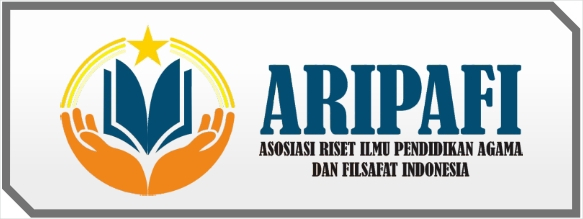Hegemoni Kekuasaan Penguasa terhadap Pendidikan Bermoral dalam Tataran Ontologis, Epistimologis dan Aksiologis
DOI:
https://doi.org/10.55606/sinarkasih.v2i3.362Keywords:
Education, Government, Hegemony, MoralsAbstract
The world of education and teaching in this contemporary phase cannot be separated from hegemonic relations between policy stakeholders. Policymakers who will exist in 2022-2023 are involved with Gen X, individuals born in the 1965-1980 period. In its power as a policy maker, education is directed and expected to become a concrete step like a machine that produces moral human beings. Morals in education are intended so that students can have the values of love, love each other within the limits of norms and have commendable ethics both in religious and cultural values. The problem in this research concerns contemporary issues regarding the hegemony of power over the moral educational process in the view of the philosophy of science at the ontological, epistemological and axiological levels. The aim of this research is to reveal the hegemony of power over the moral educational process in the view of the philosophy of science at the ontological, epistemological and axiological levels. The method used in this research is qualitative with a philosophy of science approach. From the perspective of the philosophy of science, the hegemony of power over moral education goes through three phases; ontological as a search for the nature of what and why of moral education; epistemological as a review of the hegemony of power towards moral education in the philosophical aspect and axiological as a review of the usefulness of aspects of the hegemony of power towards moral education. The results of the research show that there is a hegemony of rulers who have power which is marked by the symbol of the Minister of Religion as the ruler of Gen With this moral education, educators will continue to be wise and wise in their lives, because the function of Islamic education in Indonesia is to improve and teach morals to their students so that they become human beings who have moral values.
References
Abidin, M. (2021). Pendidikan moral dan relevansinya dengan pendidikan Islam. Jurnal Paris Langkis, 57.
Aradika, M. K., Nurwahidin, M., & Sudjarwo. (2022). Konsep pendidikan karakter anak dalam perspektif filsafat ilmu. Journal of Innovation Research and Knowledge, 2622.
Arifin, Z. (2014). Pendidikan Islam dalam perspektif filsafat ilmu. Ta’dib, 129-130.
Bristow, D. A., Denny. (2011). A cross-generational comparison of motivational factors in a sales career among Gen-X and Gen-Y college students. Journal of Personal Selling & Sales Management, 78.
Erviana, V. Y. (2021). Penanganan dekadensi moral melalui penerapan karakter cinta damai dan nasionalisme. Jurnal Penelitian Ilmu Pendidikan, 1.
Jannah, N. (2019). Realitas pesantren dan kebijakan pendidikan Islam dalam perspektif hegemoni Antonio Gramsci. Journal of Islamic Education Research, 5.
Kasman. (2022, September 14). Dialog interaktif, Dr. Taufik, M.Ag. Tujuan pendidikan Islam tugas dan fungsinya. Retrieved from Kemenag Sulteng: https://sulteng.kemenag.go.id/berita_v2/detail/dialog-interaktif-dr-taufik-mag-tujuan-pendidikan-islam-tugas-dan-fungsinya
Kattsoff, L. O. (2004). Pengantar filsafat. (S. Soemargono, Trans.) Yogyakarta: Tiara Wacana Yogya.
KBBI. (2005). Kamus Besar Bahasa Indonesia. Balai Pustaka.
Kuswandi, I. (2020). Tahapan pengembangan moral: Perspektif Barat dan Islam (Telaah terhadap gagasan Thomas Lickona, Lawrence Kohlberg dan Al-Qur’an). Ar-Risalah: Media Keislaman, Pendidikan dan Hukum Islam, 159.
Oktariani, D., Hubeis, A. V., & Sukandar, D. (2017). Kepuasan kerja generasi X dan generasi Y terhadap komitmen kerja di Bank Mandiri Palembang. Jurnal Aplikasi Bisnis dan Manajemen, 16.
Rahayu, K. Y., I. B. (2023, Agustus 25). Pemilih Golkar dari Gen Z menurun, Gen X di PKS dan PPP meningkat. Retrieved from Kompas.id: https://www.kompas.id/baca/polhuk/2023/08/24/pemilih-golkar-dari-gen-z-menurun-gen-x-di-pks-dan-ppp-meningkat
Rahmadania, S., & Sinta, A. J. (2021). Peran pendidikan agama Islam dalam keluarga dan masyarakat. Jurnal Edumaspul, 226.
Rahmatullah, A. S. (2021). Pendidikan cinta kasih anak dalam perspektif filsafat ilmu. Jurnal Filsafat Indonesia, 74.
RI, M. A. (2023, Oktober 28). Menteri Agama RI. Retrieved from Menteri Agama RI: https://kemenag.go.id/artikel/menteri-agama
Sidiq, U., & Widyawati, W. (2019). Kebijakan pemerintah terhadap pendidikan Islam di Indonesia. Ponorogo: CV. Nata Karya.
Downloads
Published
How to Cite
Issue
Section
License
Copyright (c) 2024 Sinar Kasih: Jurnal Pendidikan Agama dan Filsafat

This work is licensed under a Creative Commons Attribution-ShareAlike 4.0 International License.


















